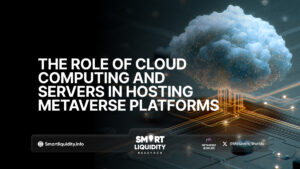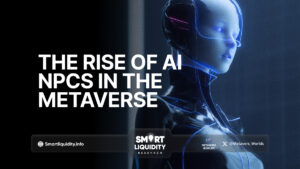Corporate and Cultural Integration in the Metaverse


The concept of the Metaverse, a virtual shared space that blends elements of augmented reality (AR), virtual reality (VR), and the internet, is rapidly evolving from science fiction into reality. Beyond its potential as a gaming platform, the Metaverse holds significant promise for transforming corporate environments and cultural integration in unprecedented ways.
Corporate Integration
In the realm of business, the Metaverse offers a revolutionary approach to collaboration and productivity. Imagine a virtual workspace where teams from around the globe can convene seamlessly, transcending physical boundaries and time zones. Companies are increasingly exploring Metaverse platforms to host meetings, conferences, and even virtual offices, providing employees with immersive experiences that mimic face-to-face interactions.
One of the key advantages is the ability to foster creativity and innovation. In traditional office settings, brainstorming sessions are confined by physical space and logistical constraints. In contrast, the Metaverse allows for limitless creativity, enabling participants to manipulate virtual environments, share 3D models, and interact with digital objects in real-time. This not only enhances the quality of collaboration but also accelerates decision-making processes.
Moreover, the Metaverse democratizes access to information and expertise. Employees can attend training sessions, workshops, and seminars hosted by industry leaders and experts, regardless of their geographical location. This democratization of knowledge promotes continuous learning and skill development, thereby boosting overall organizational efficiency and adaptability in an increasingly competitive global market.
Cultural Integration
Beyond its corporate applications, the Metaverse has the potential to revolutionize cultural integration on a global scale. In a world characterized by diversity, understanding and appreciating different cultures is paramount for fostering inclusivity and empathy.
Metaverse platforms can serve as virtual melting pots where individuals from diverse cultural backgrounds can interact, exchange ideas, and celebrate their unique traditions and perspectives. By breaking down physical barriers, the Metaverse encourages cultural dialogue and mutual understanding, paving the way for a more interconnected and harmonious global community.
Furthermore, cultural institutions and organizations can leverage the Metaverse to preserve and promote heritage. Museums can create virtual exhibitions that transcend geographical limitations, allowing people from around the world to explore artifacts and artworks with unprecedented depth and interactivity.
Challenges and Considerations
While the potential benefits of the Metaverse are vast, it is essential to address challenges such as data privacy, digital divide, and ethical considerations surrounding virtual identities. Companies and policymakers must work collaboratively to establish robust frameworks that safeguard user rights and ensure equitable access to Metaverse technologies.
In conclusion, the Metaverse represents a paradigm shift in corporate collaboration and cultural integration. By harnessing its transformative potential, businesses can enhance productivity, creativity, and global connectivity, while fostering a more inclusive and culturally enriched society. As we navigate this digital frontier, embracing innovation with responsibility will be key to unlocking the full promise of the Metaverse for generations to come.




